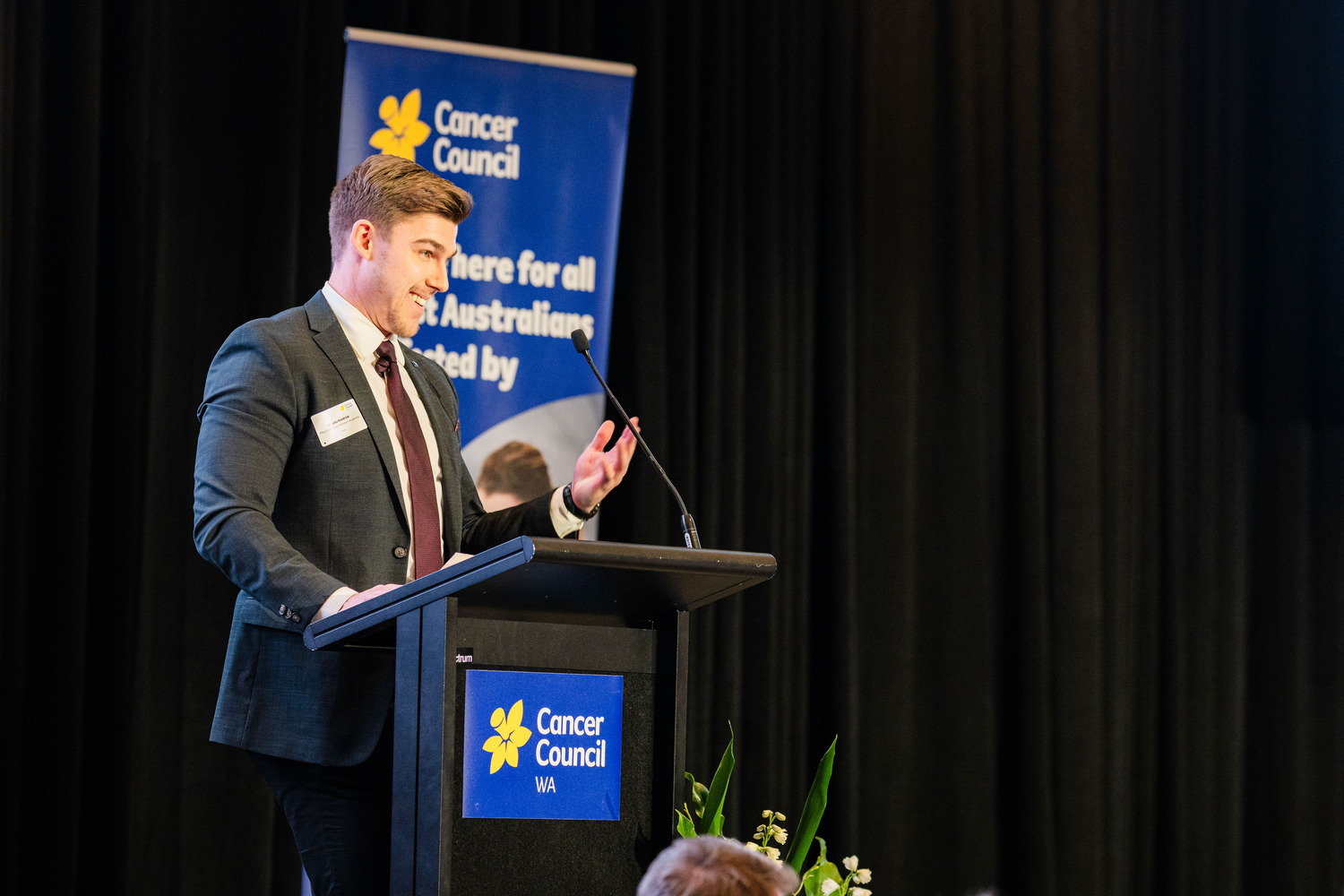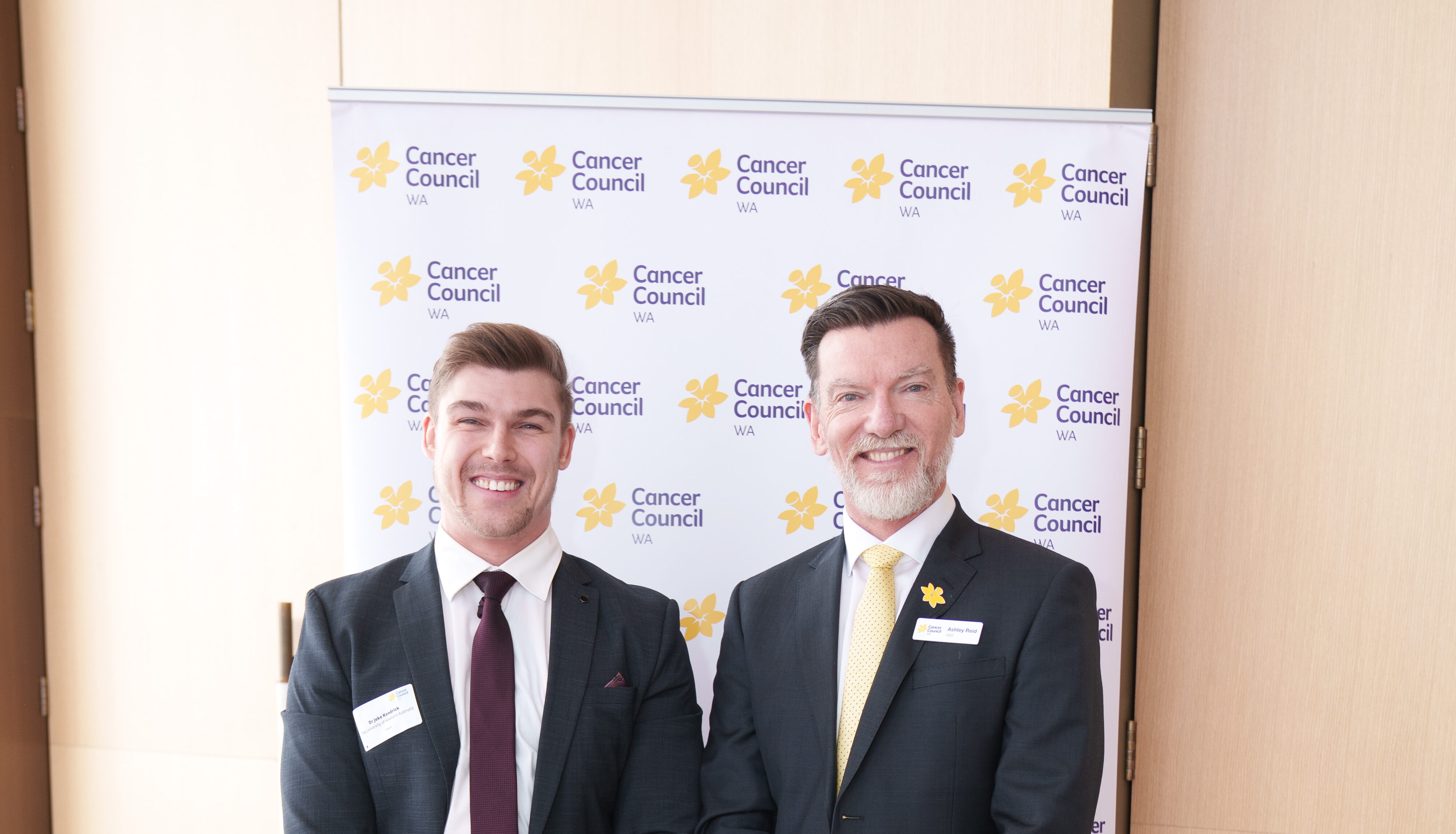 A new artificial intelligence model that has the potential to reshape how clinicians assess and treat advanced prostate cancer has been recognised in the Cancer Council WA research awards.
A new artificial intelligence model that has the potential to reshape how clinicians assess and treat advanced prostate cancer has been recognised in the Cancer Council WA research awards.
Dr Jake Kendrick, a medical physicist and researcher at UWA was named the 2025 Early Career Cancer Researcher of the Year at this year’s awards for his work developing the model.
His work with AI that provides quantitative data about the spread of prostate cancer in a patient’s body that would otherwise not be collected began in 2022 when he started his PhD.
“Basically, what we’ve been looking at is using artificial intelligence to analyse a specific kind of nuclear medicine scan, known as a PET image. These types of images are really important for taking a look at patients with prostate cancer,” Dr Kendrick said.
RELATED: Artificial intelligence – making healthcare smarter
His work has focused on patients with advanced prostate cancer.
“So often times it has spread from the original site of the prostate to other areas in the patient’s body and that might be their bones or other soft tissues,” Dr Kendrick said.
“The problem with these scans is that they are typically whole-body scans because you want to get a good idea of where the disease has spread throughout the patient’s body.”

Dr Kendrick said analysing these scans by hand would be an extremely tedious task, but that’s where AI can be helpful.
“Often clinicians will need to go through those images and determine where those sites are, and if we want to extract some quantitative information from those images then we need to literally circle them, so segment them, contour them on the image where all of those disease sites are – that’s a really elongated process.”
He said such a process might take 30-60 minutes, which is unhelpful for time-poor clinicians.
“The AI model is really about enabling the addition of information that previously wouldn’t be there because it’s too time consuming to even consider doing it in a busy clinical practice.”
RELATED: The role of AI scribes in GP consults
With a PET scan fed into the model, the click of a button will result in a full segmentation map of a patient’s exact disease sites.
“We can use that to predict what sort of treatment the patient might be most optimally suited for,” Dr Kendrick said.
The model has been tested using scans of chemically recurrent prostate cancer and looking at selection for radionuclide therapy.
“The next step would be around how we can integrate that into practice, test how a clinician would interact with this model and what implications that has for patient treatment before we’re confident that we can deploy it clinically.”
Dr Kendrick expects the use of the AI model to improve patient outcomes.
“This hasn’t been tested but my suspicion is that as we progress and start testing these models in clinical trials we will see that outcomes will improve because of the additional information we are able to get.”
The ultimate goal would be to deploy the model for use at Sir Charles Gairdner and Fiona Stanley Hospitals.
RELATED: The new treatments changing life after prostate cancer
Dr Kendrick said the $10,000 of research funding that came with the award would support his ongoing research to further refine and implement the tool in clinical settings.
“Cancer affects so many, including my own family, and the possibility that my research could improve care for others is what drives me every day,” he said.
Cancer Council WA chief executive Ashley Reid, said: “Dr Kendrick’s research combined clinical expertise with powerful new technology, and it could significantly improve survival outcomes for men living with prostate cancer.”
Want more news, clinicals, features and guest columns delivered straight to you? Subscribe for free to WA’s only independent magazine for medical practitioners.
Want to submit an article? Email editor@mforum.com.au

